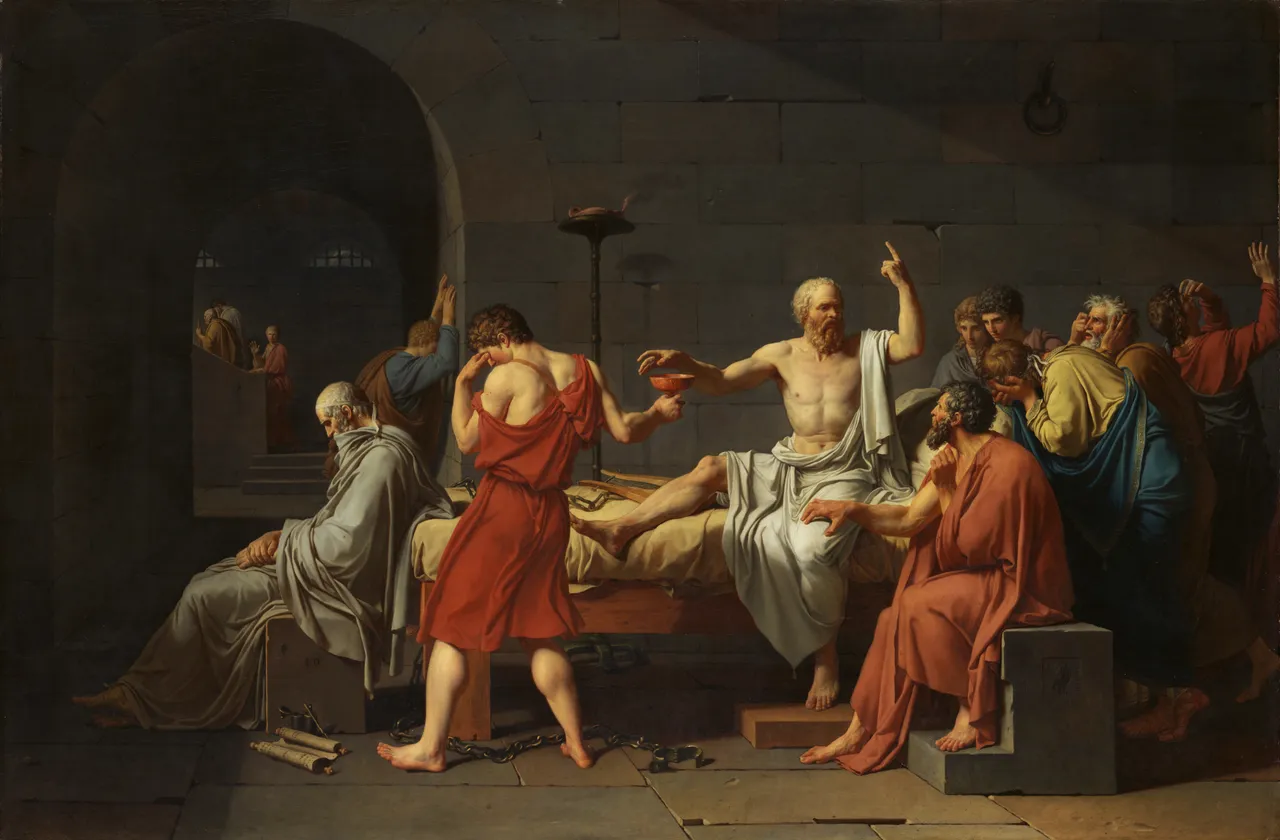I decided to write a post a day in August. My last several posts on proof of brain looked Pythagoras, Heraclitus, Parmenides and Zeno.
The pre-Socratic philosophers had valuable insights; however, their attempts to develop a more comprehensive approach to philosophy kept running against intractable paradoxes.
The people of Athens had experimented with different forms of government including stabs at pure democracy where all citizens had a chance to vote on all issues.
Unfortunately, the intellectual climate of the fourth century BC had deteriorated. The intellectual world was dominated by trained sophists who learn to argue from paradoxes and would sell their skills to the highest bidder.
Excuse me for a moment, I want to switch from CNN to see what they are saying on FOX.
What was I talking about?
Sophists were trained intellectuals who used paradox laced arguments to support the cause of their masters.
So, while Ancient Greeks were trying to develop a civil society, they had a divisive intellectual climate.
Notably, sophists saw words as weapons. Because these word-warriors did not want to give their enemies a chance to study their playbook, sophists were notorious for not writing down their ideas.
Because of this, historians really don't know what the sophists were saying.
Socrates (470–399 BC) was one of the greatest sophists.
Since he didn't write out his thoughts, we really don't know what Socrates said.
The two main biographers of Socrates were Xenophon and Plato. It is likely that Xenophon accurately recorded the dialogs of Socrates.
Plato was a politically ambitious man. Plato realized that he was granted a golden opportunity. Plato found that he could gain moral authority by stuffing words into Socrates' mouth.
The Socratic dialogs usually involved a wise man who pretended to know nothing engaged in a discourse with a pompous supplicant about a variety of moral and philosophical questions.
During the dialog the wise-man would demonstrate that the supplicant's views on the issue were inconsistent. The dialogues would imply that the process of examination leads to a better understanding of the topic.
The Socratic dialogues touched on the major philosophical and ethical issues of the day.
Some people called the Socratic Method "dialectics." I should point out that the dialogues were probably fictional because it is next to impossible to construct dialogues that follow along the designed path of those attributed to Plato.
Since Socrates was devoted to open inquiry, he regularly run afoul of the political leadership. He was charged and found guilty of impiety and forced to drink hemlock.
Plato and Socrates
Plato was the central figure in Ancient Greek philosophy. He established a school called "The Academy" which played a central role in educating young thinkers.
The school built a curriculum which examined the ideas of the Pre-Socratic thinkers. The school discussed ideas such the distinction between being and becoming. There were also great discussions about multiplicity. The main focus of the dialogues was ethics.
Plato claimed that the Socratic Dialogues were unveiling hidden aspects of reality called "forms."
Plato was mystic who built on the notion of Parmenides that the world we see around us is an illusion.
Plato developed a allegory called "Plato's Cave." The allegory has a race of people who are in bondage in a cave watching shadows on the wall which they believe to be real. A person escapes from the cave to see the real world, then tried to return to tell the people that they are living in a matrix of illusion.
The hint is that the people live under the yolk of illusion while the philosopher sees these things called forms.
Plato did not like the Athenian Democracy. In the work "The Republic," Plato claimed that the political ideal is a class society with people firmly embedded in their station in life. The ideal society would be ruled by a philosopher king.
Plato's discussion of the cosmology indicated that there was a thing called a demiurge directing the universe; So, while Greek Mythology claimed that there was a pantheon of gods, the thoughts of the philosophers were favoring the idea that there was more unity in the universe.
Plato is a fun read. His works have had profound influence on all disciplines. The scope of the works shows that the people of Athens discussed a broad scope of topics.
I just looked at the clock. August is about to come to an inglorious end. So I need to press the publish button. The picture is a painting in the public domain titled The Death of Socrates painted in 1787 by Jacques-Louis David.

September should start well because I am finally arriving at a post about one of the most important discoveries in Western Civilization.
A long time ago, I read an article claiming that the US Founder's preferred Xenophon's to Plato. Plato was essentially arguing for a class society.
PS: I will do my Power Up Day Post on the @irivers account. It should show up tomorrow morning.
